A LARGE-SCALE CONFERENCE “QUALITY EDUCATION AND INNOVATION – THE BASIS OF A SUSTAINABLE FUTURE” WAS HELD
July 5, 2023On July 3-7, 2023, the week of international partnership initiatives under the topic of “New Uzbekistan: Development, Innovation and Enlightenment” is being held in Tashkent.
The main goal of this international week is to discuss democratic reforms in New Uzbekistan including their nature, achievements and next tasks that are going to be completed, a completely new socio-economic, political-legal and spiritual-educational environment that is emerging in the country and to exchange the views on internal and external policy of the country among foreign and national experts and analysts.
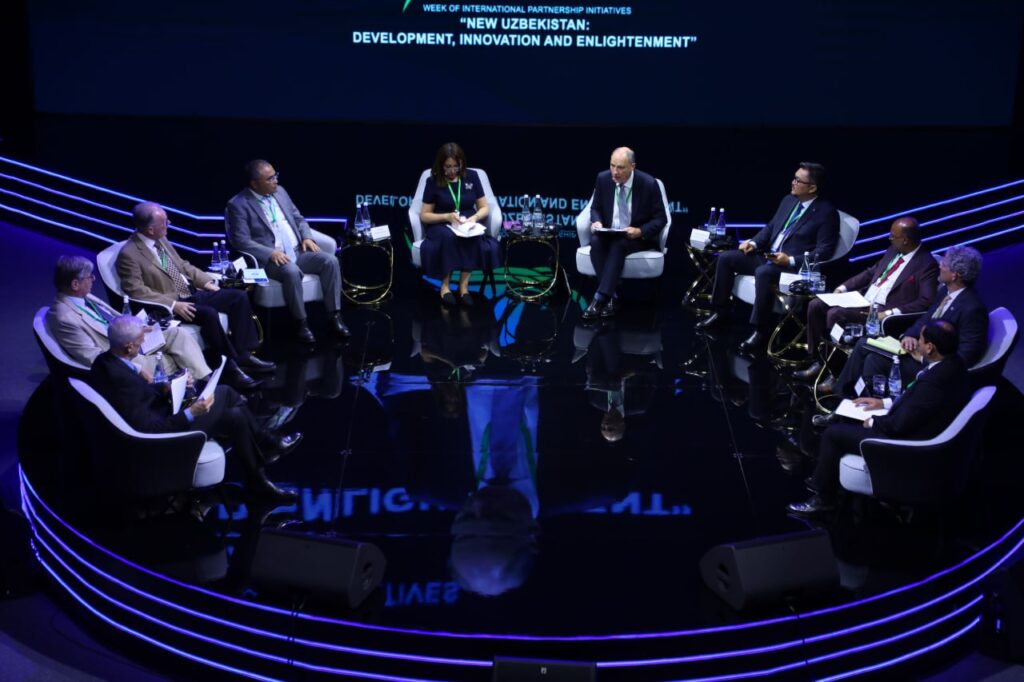
More than 450 politicians, representatives of large businesses, experts, as well as representatives of a number of international organizations from more than 60 countries are participating in this prestigious international conference, which has attracted the attention of the world community.
In particular, on the third day of the international week, the Ministry of higher education, science and innovation of the Republic of Uzbekistan is holding an international conference on the topic “Quality education and innovations are the foundation for a sustainable future” at the Event Hall in Tashkent.
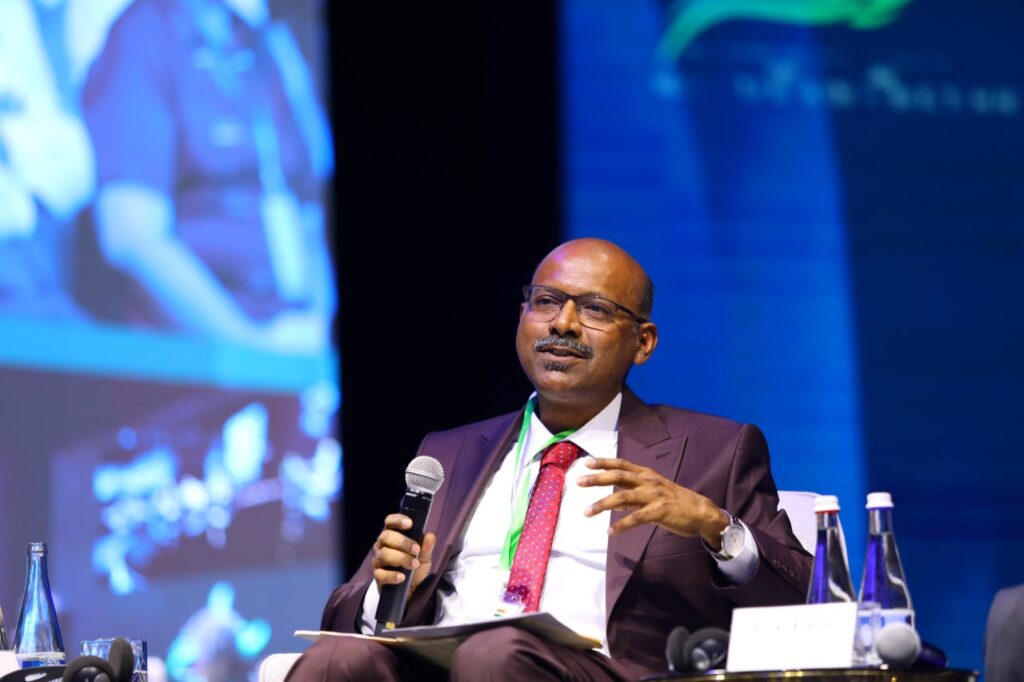
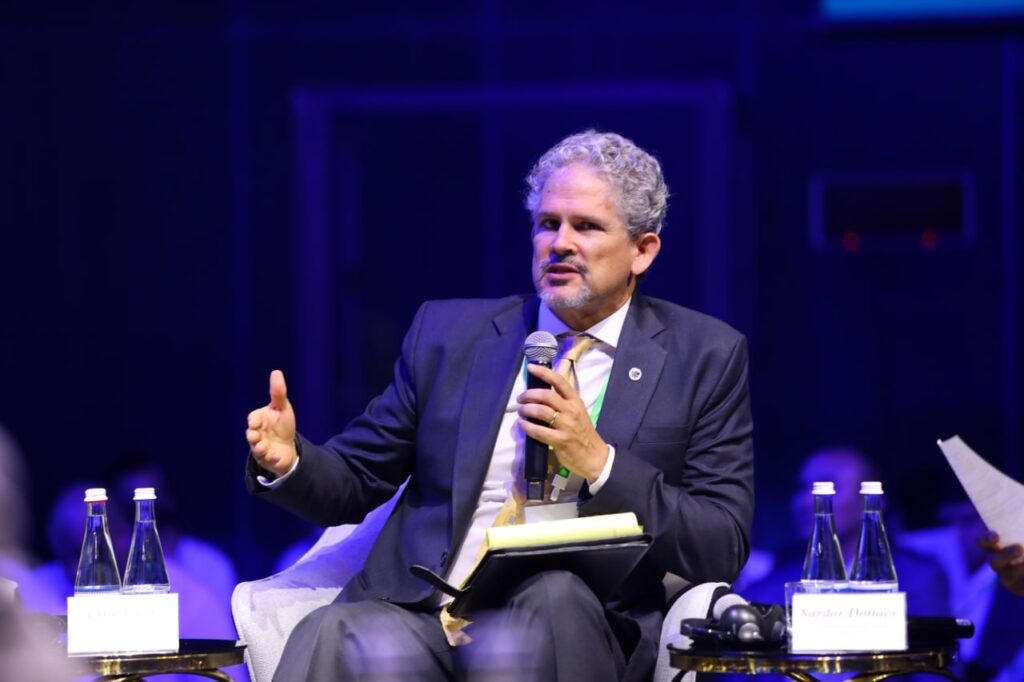
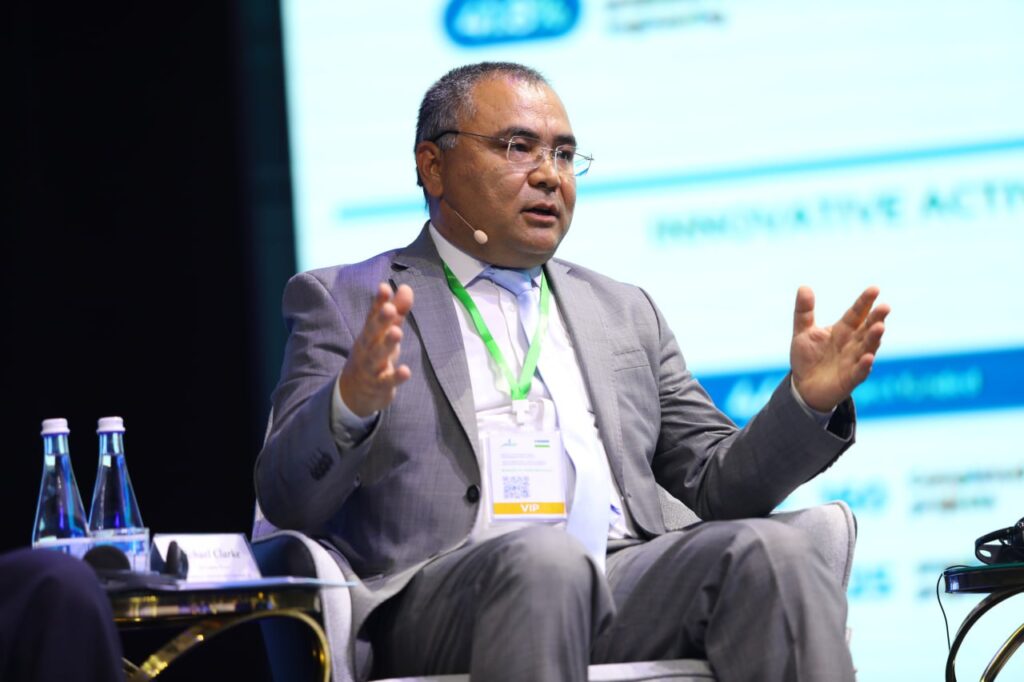
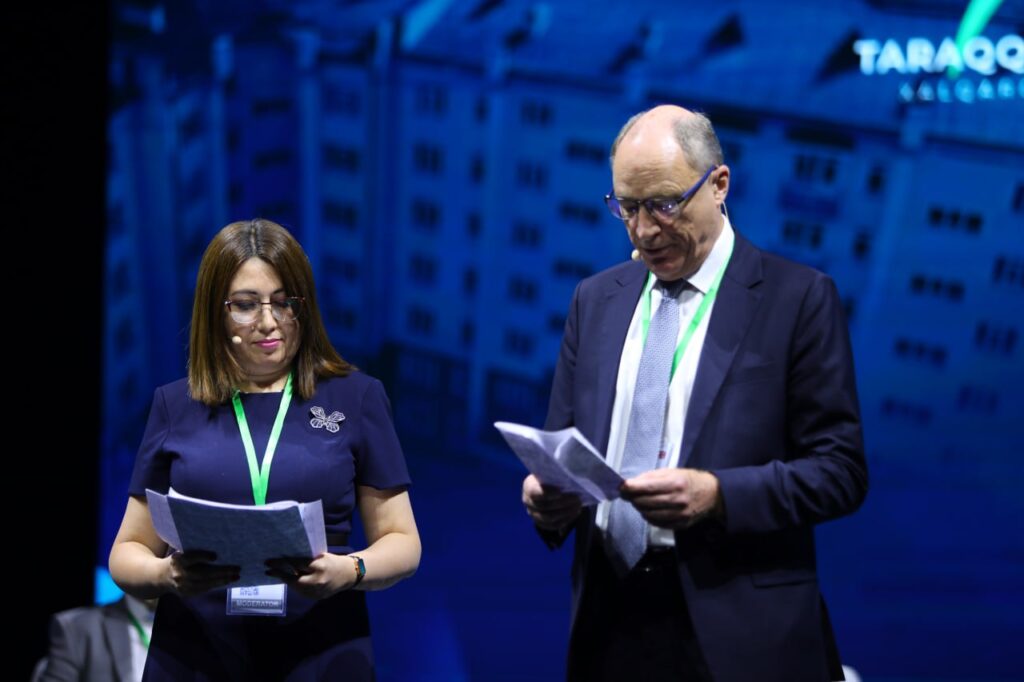
Minister of Higher Education, Science and Innovation, academician Ibrokhim Abdurakhmonov highlighted as a result of reforms in the country, legal and regulatory frameworks have been developed and radically updated, aimed at introducing effective mechanisms to create favorable conditions for development, improve the quality and expand coverage of education in the country, ensure the flexibility of the training system, taking into account the needs of the economy, comprehensive support and development of scientific and innovative activities, formation and further improvement of the country’s innovative potential.
The annual amount of funds allocated from the state budget in the field of innovation and science has been increased threefold, and the amount of R&D project financing has been increased by 3.5 times. Significant efforts have been made to develop the startup ecosystem by establishing 19 innovative infrastructures and by introducing systems for accelerating and incubating startup teams. Consequently, 136 startup projects with a total value of 105.7 bln. UZS was financed. As a result of the establishment of new mechanisms for the development and commercialization of R&D projects, a total of 455.1 bln. UZS worth of scientific works have been commercialized.
Furthermore, the salaries of researchers and scientists at higher educational and research institutions have been increased by 3.2 times and new incentives were introduced based on their innovative activities. As a result, in 2022, Uzbekistan ranked 82nd across the 132 countries in the ranking of the Global Innovation Index, which charts the trends of innovative development of the countries of the world (took 3rd position in Central and South Asian region by rising by 40 positions compared to 2015).
Subsequently, the Strategy for Innovative Development of New Uzbekistan was adopted in order to develop a continuous ecosystem “industry-region-scientific/higher educational institution” from creating new jobs to creating economic value (capital) in the formation of a creative economy in the country. The current strategy aims to bring Uzbekistan among Top-50 countries across the world in Global Innovation Index.
During the panel session “Strategy of innovative development of New Uzbekistan” gave a speech Erbol Suleymanov – international expert in the “Modernization of National innovation system of Uzbekistan” (MUNIS) project, Basheer Chanbasha – international expert in energy and new materials (India), Erik Azulay – founder and general director of Nexus innovation hub and incubator (USA). In particular, it was noted that the process of implementing the innovative development strategy of the Republic of Uzbekistan in 2022-2026 requires flexibility and constant assessment of the current state of science and innovation, taking into account global trends. Therefore, it was highlighted to conduct continuous monitoring and research in this particular direction. In order to create a more effective development strategy in accordance with the changes in the world and its own needs, it is important to make an objective assessment of the current state of the country.
During the panel session of “Reforms in the higher education system: modern problems and tendencies” participated Academic rector of Webster University in Tashkent Vassilis Polimenis, Rector of British management university in Tashkent Conrad Ozog, vice-rector of Westminster international university in Tashkent Michael Clarke and rector of Tashkent state technical university Sadritdin Turabdjanov.
Over the past 6 years, the number of universities in the higher education system of Uzbekistan has increased from 77 to 210, admission to them has increased by 3.5 times, and the level of enrollment of young people in higher education has increased from 9% to 39%. It was noted that due to the involvement of the private sector, 65 non-state higher educational institutions were established, the number of foreign higher educational institutions was increased to 30, and the number of state higher educational institutions was increased to 115. Based on the European ECTS – European Credit Transfer and Accumulation System, the educational process in higher education institutions was transferred to a credit-modular system, it was noted that 41 universities were granted academic and financial independence. Also, state educational standards in the higher education system were redesigned on the basis of the “International Standard Classification of Education” and “TSCK: areas of education and training” introduced by UNESCO. At the present time, these standards have been approved by the Ministry of Higher Education, Science and Innovation and have undergone state registration, and are used in the educational process.
During the last six years, 8,636 professors and teachers were sent to foreign higher education and scientific-research institutions for training and internships within the framework of mutual cooperation and grant programs of higher education institutions. In order to further improve the quality and efficiency of education in higher education institutions, 7,385 foreign specialists were involved in the educational process.
During the panel session “Global innovation index – indicator of innovation development: world experience” gave a speech Rector of Tashkent state university of economics Kongratbay Sharipov, International expert (USA) Kendrick White, International management development and capacity building consultant (Switzerland) Marlon Lezema, Member of the Council of Kazakhstan association of experts on technology commercialization Abilai Akimbekov. It was noted that as a result of the country’s policy of openness, attention to science and work aimed at increasing innovative potential, Uzbekistan for the first time became the leader of Central Asia and ranked 82nd in the world in terms of innovative development in the Global Innovation Index 2022.
During the panel session “Higher education and innovative development” participated World Bank expert (France) Jean-Jacques Royes, Chairman of SwissNewater (Switzerland) Claude Begle, Intellectual property legal consultant and project manager of the company Red Sea Farms (Saudi Arabia) Abay Jangabilov and Rector of Tashkent university of information technologies named after Muhammad Al-Khwarizmi Bakhtiyar Mahkamov.
It was noted that in the last 6 years, the percentage of teachers with a scientific degree in our republic has increased from 32.7% to 39.3%.
The amount of annual funds allocated from the state budget to the fields of innovation and science has been increased by 3 times, and the amount of project financing has been increased by 3.5 times. In higher education and scientific-research institutions, the basic salaries of employees with scientific degrees have been increased by 3.2 times, and the procedure for paying additional wages to employees based on target indicators has been introduced. The material and technical base of scientific research institutes was radically updated, 272 types of laboratory equipment worth 160.16 billion UZS were delivered to them over the course of 5 years.
The system of financing science and scientific activity has been diversified, the funds allocated to science and innovation from industrial enterprises and the private sector have increased by 3 times during 2018-2022. During 2018-2022, the number of quotas allocated for doctoral studies increased by 7.1 times and reached 3,600 in 2022. The intern-research institute was introduced as a preparatory stage for post-graduate education and 1,200 young scientists were covered.



No Comments so far
Jump into a conversationNo Comments Yet!
You can be the one to start a conversation.